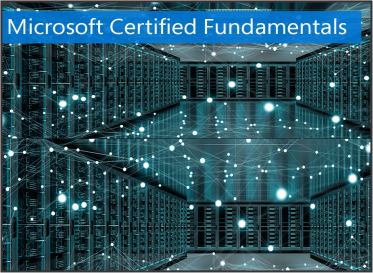The Microsoft Certified Fundamentals exams are the pathway to fully understanding what cloud computing is, what options are available from Microsoft, and which options make sense for businesses to invest in. This set of exams is for students who are exploring a career in artificial intelligence, data science, and cloud computing. With the usage of big data and artificial intelligence on the rise, the demand for data scientists is not being met—and the gap is widening.
Help your students get on the pathway to a prosperous career by administering Microsoft Certified Fundamentals exams in your classroom.
Available certifications
-
Azure Fundamentals (AZ-900)This exam is designed for candidates looking to demonstrate foundational knowledge on the considerations and benefits of adopting cloud services in general and the Software as a Service (SaaS) cloud model. This exam will also cover knowledge of available options and benefits gained by implementing Microsoft 365 cloud service offerings.
This exam can be taken as a precursor to cloud computing and technologies exams such as Office 365, Microsoft Intune, Azure Information Protection (AIP), and Windows 10. -
Microsoft 365 Fundamentals (MS-900)This exam is designed for candidates looking to demonstrate foundational knowledge on the considerations and benefits of adopting cloud services in general and the Software as a Service (SaaS) cloud model. This exam will also cover knowledge of available options and benefits gained by implementing Microsoft 365 cloud service offerings.
This exam can be taken as a precursor to cloud computing and technologies exams such as Office 365, Microsoft Intune, Azure Information Protection (AIP), and Windows 10. -
Microsoft Azure AI Fundamentals (AI-900)This exam is an opportunity to demonstrate knowledge of common ML and AI workloads and how to implement them on Azure. It is intended for candidates with both technical and non-technical backgrounds.
Candidates for this exam should have foundational knowledge of machine learning (ML) and artificial intelligence (AI) concepts and related Microsoft Azure services. Data science and software engineering experience are not required; however, some general programming knowledge or experience would be beneficial. -
Microsoft Azure Data Fundamentals (DP-900)This exam is intended for candidates beginning to work with data in the cloud.
Candidates for this exam should have foundational knowledge of core data concepts and how they are implemented using Microsoft Azure data services, and should be familiar with the concepts of relational and non-relational data, and different types of data workloads such as transactional or analytical. -
Microsoft Power Platform Fundamentals (PL-900)Candidates for this exam are users who aspire to improve productivity by automating business processes, analyzing data to produce business insights, and acting more effectively by creating simple app experiences.
-
Microsoft Dynamics 365 Fundamentals CRM (MB-910)This exam covers the features and capabilities of Microsoft Dynamics 365 customer engagement apps. Candidates of this exam should have general knowledge of or relevant working experience in an Information Technology (IT) environment. They should also have a fundamental understanding of customer engagement principles and business operations.
-
Microsoft Dynamics 365 Fundamentals ERP (MB-920)This exam covers the features and capabilities of Microsoft Dynamics 365 finance and operations apps. Candidates of this exam should have general knowledge of or relevant working experience in an Information Technology (IT) environment. They should also have a fundamental understanding of financial principles and business operations.
-
Microsoft Security, Compliance, and Identity Fundamentals (SC-900)This certification is targeted to those looking to familiarize themselves with the fundamentals of security, compliance, and identity (SCI) across cloud-based and related Microsoft services. Candidates should be familiar with Microsoft Azure and Microsoft 365 and want to understand how Microsoft security, compliance, and identity solutions can span across these solution areas to provide a holistic and end-to-end solution.

